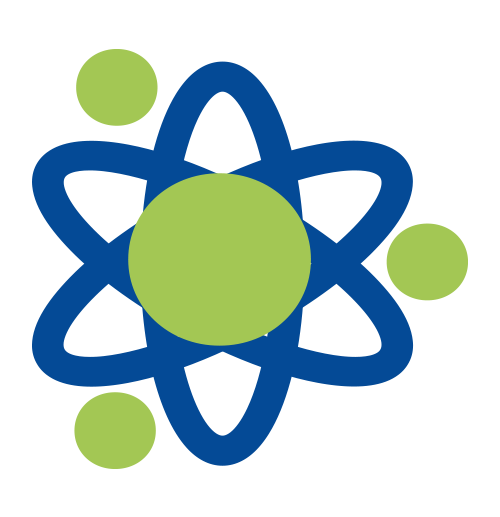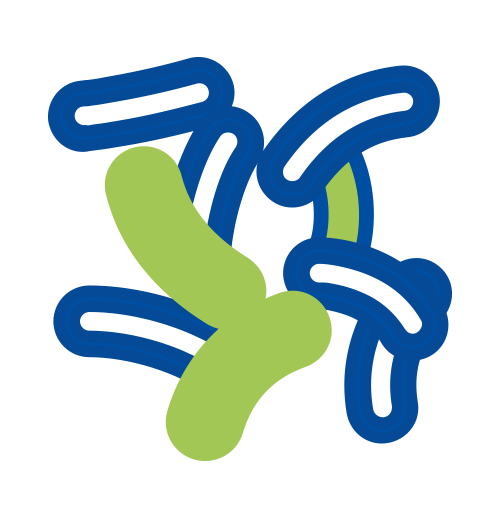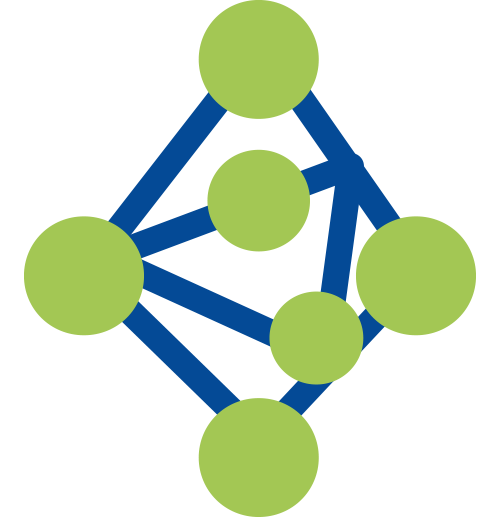The oligonucleotide synthesis industry has undergone significant technological advancement in 2025, with high-throughput synthesis platforms fundamentally transforming research economics and experimental capabilities. This comprehensive analysis examines the current state of advanced oligonucleotide synthesis technologies, focusing on technical specifications, cost optimization strategies, and implementation guidelines for molecular biology research institutions.
Modern synthesis platforms now deliver unprecedented throughput capabilities while maintaining stringent quality standards, enabling researchers to access comprehensive oligonucleotide libraries at costs that represent substantial improvements over traditional synthesis methods. The integration of array-based synthesis technologies with automated quality control systems has established new benchmarks for both efficiency and reliability in nucleic acid synthesis.
Technical Foundations of Advanced Synthesis Platforms
High-Throughput Synthesis Technologies
Contemporary oligonucleotide synthesis platforms employ sophisticated microarray-based technologies that enable simultaneous production of diverse sequence libraries. These systems utilize advanced semiconductor manufacturing principles to achieve precise spatial control over synthesis reactions, resulting in exceptional throughput capabilities and uniform quality across large-scale production runs.
The fundamental architecture of modern synthesis platforms incorporates several key technological innovations:
Array-Based Synthesis Design
- Semiconductor-compatible substrate materials for precise feature definition
- Photolithographic patterning techniques for accurate spatial control
- Optimized surface chemistry for enhanced coupling efficiency
- Integrated quality monitoring systems for real-time process control
Automated Process Control
- Computerized reagent delivery systems with precise volumetric control
- Temperature-controlled reaction chambers for optimal synthesis conditions
- Automated washing and deprotection protocols
- Real-time monitoring of synthesis progress and quality metrics
Quality Assurance and Technical Specifications
Modern synthesis platforms maintain rigorous quality standards through comprehensive analytical protocols and process control measures. These systems incorporate multiple quality assessment methodologies to ensure consistent performance across diverse sequence libraries.
Quality Control Parameters
- Synthesis fidelity assessment through mass spectrometry analysis
- Purity verification using high-performance liquid chromatography
- Sequence accuracy confirmation via next-generation sequencing
- Contamination screening protocols for batch-to-batch consistency
Technical Performance Metrics
- Synthesis throughput capabilities exceeding traditional column-based methods
- Quality specifications meeting international standards for research applications
- Turnaround time optimization for rapid project completion
- Scalability features for varying project requirements
Cost Analysis and Economic Advantages
Comparative Cost Structure Analysis
The economic landscape of oligonucleotide synthesis has been fundamentally altered by technological advances in high-throughput synthesis platforms. These improvements have enabled significant cost reductions while maintaining quality standards appropriate for demanding research applications.
Cost Reduction Factors
- Parallel synthesis capabilities reducing per-unit production costs
- Automated process control minimizing labor requirements
- Optimized reagent utilization through precise delivery systems
- Reduced waste generation through improved process efficiency
Economic Benefits by Application Category
- Large-scale library construction projects benefit from volume-based cost advantages
- CRISPR screening applications achieve substantial cost savings through pooled synthesis
- Next-generation sequencing applications realize improved cost-per-sample metrics
- Synthetic biology projects access previously cost-prohibitive experimental approaches
Implementation Cost Considerations
Research institutions implementing advanced synthesis technologies must consider multiple cost factors beyond basic synthesis charges. These considerations include project planning, quality assurance, and long-term strategic objectives.
Direct Cost Components
- Synthesis fees based on sequence complexity and quantity requirements
- Quality control assessments appropriate for specific application needs
- Delivery and handling charges for specialized packaging requirements
- Technical support services for optimization and troubleshooting
Indirect Cost Benefits
- Reduced project timelines through accelerated synthesis schedules
- Improved experimental reliability through enhanced quality control
- Decreased reagent waste through optimized synthesis protocols
- Enhanced research capabilities enabling more ambitious project designs
Application-Specific Implementation Guidelines
CRISPR Library Construction
The development of comprehensive CRISPR libraries represents one of the most significant applications of advanced oligonucleotide synthesis technologies. These libraries require precise sequence design and stringent quality control to ensure optimal performance in gene editing applications.
For researchers interested in comprehensive CRISPR library solutions, CRISPR sgRNA Library Custom sgRNA Library Synthesis provides detailed specifications and implementation guidelines for custom library development projects.
Design Considerations for CRISPR Libraries
- Target sequence selection based on computational prediction algorithms
- Off-target assessment protocols for enhanced specificity
- Library complexity optimization for comprehensive genome coverage
- Quality control measures specific to functional screening applications
Synthetic Biology Applications
Advanced oligonucleotide synthesis platforms enable sophisticated synthetic biology applications through precise sequence control and high-throughput production capabilities. These applications require specialized design considerations and quality assurance protocols.
Synthetic Biology Implementation Strategies
- Modular design approaches for complex genetic circuits
- Standardized assembly protocols for reliable construction
- Quality verification methods for functional validation
- Scalability considerations for production applications
Next-Generation Sequencing Applications
Custom oligonucleotide synthesis plays a critical role in next-generation sequencing applications, from target enrichment to library preparation. These applications require precise sequence specifications and rigorous quality control measures.
Comprehensive information about custom oligonucleotide pools for NGS applications is available through Oligo Pools Synthesis Custom Oligonucleotides Pools, which details technical specifications and implementation protocols.
NGS-Specific Requirements
- Sequence complexity optimization for uniform representation
- Quality specifications appropriate for sequencing platform compatibility
- Contamination prevention protocols for sensitive applications
- Batch-to-batch consistency measures for reproducible results
Technology Platform Capabilities
Advanced Synthesis Infrastructure
Modern oligonucleotide synthesis facilities incorporate state-of-the-art technologies that enable exceptional throughput and quality performance. These systems represent significant technological advancement over traditional synthesis approaches.
Infrastructure Components
- High-capacity synthesis platforms with automated process control
- Comprehensive quality control laboratories with advanced analytical capabilities
- Specialized storage and handling systems for product integrity
- Integrated informatics systems for project management and quality tracking
Quality Management Systems
Advanced synthesis platforms maintain comprehensive quality management systems that ensure consistent performance and regulatory compliance. These systems incorporate multiple quality assessment methodologies and process control measures.
Quality System Elements
- Standardized operating procedures for all synthesis processes
- Comprehensive documentation systems for traceability
- Regular calibration and maintenance protocols for equipment
- Continuous improvement programs for process optimization
Strategic Implementation Recommendations
Project Planning Considerations
Successful implementation of advanced oligonucleotide synthesis technologies requires careful project planning and strategic decision-making. Research institutions must consider multiple factors when selecting synthesis approaches and vendors.
Planning Framework Elements
- Comprehensive needs assessment for project requirements
- Cost-benefit analysis comparing synthesis alternatives
- Timeline optimization for project milestones
- Quality specification development for application requirements
Vendor Selection Criteria
The selection of appropriate synthesis vendors represents a critical decision that impacts project success and long-term research objectives. Research institutions should evaluate multiple factors when making vendor selections.
Evaluation Criteria
- Technical capabilities and quality specifications
- Cost structure and pricing transparency
- Turnaround time and delivery reliability
- Technical support and customer service quality
For comprehensive information about advanced synthesis technologies and capabilities, researchers can explore Core Technology High-throughput DNA Synthesis for detailed technical specifications and implementation guidance.
Future Developments and Industry Trends
Emerging Technologies
The oligonucleotide synthesis industry continues to evolve with emerging technologies that promise further improvements in throughput, quality, and cost-effectiveness. These developments represent significant opportunities for research advancement.
Technology Development Areas
- Enhanced synthesis chemistry for improved fidelity
- Advanced automation systems for increased throughput
- Novel quality control methods for comprehensive assessment
- Integrated informatics platforms for streamlined project management
Market Evolution
The oligonucleotide synthesis market continues to expand with increasing demand from diverse research applications. This growth drives continued innovation and competitive improvements in synthesis technologies.
Market Trends
- Increasing adoption of high-throughput synthesis platforms
- Growing demand for custom synthesis services
- Expansion of application areas requiring specialized synthesis capabilities
- Continued cost reduction through technological advancement
Oligo Pool vs Traditional Synthesis: Cost Comparison
Custom oligo pools offer significant cost advantages over traditional single-sequence synthesis methods. Our comprehensive analysis demonstrates substantial savings across multiple project scales:
Dynegene Oligo Pool Pricing Advantages
- Competitive pricing for high-volume oligo pool orders
- Transparent pricing structure with no hidden fees
- Volume discounts for research institutions and pharmaceutical companies
- Flexible payment terms for long-term partnerships
ROI Calculator for Oligo Pool Projects
To help researchers evaluate the cost-effectiveness of oligo pools for their projects, consider these factors:
- Project scale: Oligo pools become increasingly cost-effective with larger sequence numbers
- Time savings: Reduced synthesis time translates to faster research outcomes
- Quality consistency: Uniform synthesis conditions reduce experimental variability
- Technical support: Comprehensive consultation services add value beyond synthesis
Dynegene Oligo Pool Technical Specifications
Our advanced oligo pool synthesis platform delivers industry-leading performance specifications:
Synthesis Platform Specifications
- Maximum oligo pool size: 4.35 million sequences per chip
- Sequence length range: 20-300 nucleotides
- Synthesis accuracy: >99.9% per nucleotide incorporation
- Coverage uniformity: >99% of designed sequences
- Turnaround time: 2-3 weeks for standard orders
Quality Control Standards
- NGS verification of all oligo pool batches
- Quantitative analysis of sequence representation
- Contamination testing and purity assessment
- Comprehensive documentation and certificates
For detailed manufacturing insights, see our oligo pool synthesis manufacturing guide. To get started with your project, visit our ordering instructions.
Conclusion
Advanced oligonucleotide synthesis technologies have fundamentally transformed the landscape of molecular biology research through significant improvements in throughput, quality, and cost-effectiveness. These technological advances enable research institutions to pursue ambitious experimental objectives while maintaining fiscal responsibility and scientific rigor.
The successful implementation of these technologies requires careful consideration of technical specifications, cost structures, and application requirements. Research institutions that strategically adopt advanced synthesis platforms position themselves to capitalize on emerging opportunities in synthetic biology, gene editing, and next-generation sequencing applications.
As the oligonucleotide synthesis industry continues to evolve, ongoing technological development promises further improvements in capabilities and cost-effectiveness. Research institutions that establish partnerships with leading synthesis providers will be well-positioned to benefit from these continuing advances while maintaining access to cutting-edge synthesis technologies and technical expertise.
The future of oligonucleotide synthesis lies in the continued integration of advanced technologies with comprehensive quality systems, enabling researchers to pursue groundbreaking scientific discoveries with confidence in the reliability and performance of their synthesis partners.
 NGSHybridization Capture DNA Probe QuarStar Human All Exon Probes 4.0 (Tumor) QuarStar Human All Exon Probes 4.0 (Standard) QuarStar Liquid Pan-Cancer Panel 3.0 QuarStar Pan-Cancer Lite Panel 3.0 QuarStar Pan-Cancer Fusion Panel 1.0 QuarStar Pan Cancer Panel 1.0 Hybridization Capture RNA Probe QuarXeq Human All Exon Probes 3.0 HRD panel Library Preparation DNA Library Preparation Kit Fragmentation Reagent mRNA Capture Kit rRNA Depletion Kit QuarPro Superfast T4 DNA Ligase Hybridization Capture QuarHyb Super DNA Reagent Kit QuarHyb DNA Plus 2 Reagent Kit QuarHyb DNA Reagent Kit Plus QuarHyb One Reagent Kit QuarHyb Super Reagent Kit Pro Dynegene Adapter Family Dynegene Blocker Family Multiplex PCR QuarMultiple BRCA Amplicon QuarMultiple PCR Capture Kit 2.0 PathoSeq 450 Pathogen Library Corollary Reagent Streptavidin magnetic beads Equipment and Software The iQuars50 NGS Prep System
NGSHybridization Capture DNA Probe QuarStar Human All Exon Probes 4.0 (Tumor) QuarStar Human All Exon Probes 4.0 (Standard) QuarStar Liquid Pan-Cancer Panel 3.0 QuarStar Pan-Cancer Lite Panel 3.0 QuarStar Pan-Cancer Fusion Panel 1.0 QuarStar Pan Cancer Panel 1.0 Hybridization Capture RNA Probe QuarXeq Human All Exon Probes 3.0 HRD panel Library Preparation DNA Library Preparation Kit Fragmentation Reagent mRNA Capture Kit rRNA Depletion Kit QuarPro Superfast T4 DNA Ligase Hybridization Capture QuarHyb Super DNA Reagent Kit QuarHyb DNA Plus 2 Reagent Kit QuarHyb DNA Reagent Kit Plus QuarHyb One Reagent Kit QuarHyb Super Reagent Kit Pro Dynegene Adapter Family Dynegene Blocker Family Multiplex PCR QuarMultiple BRCA Amplicon QuarMultiple PCR Capture Kit 2.0 PathoSeq 450 Pathogen Library Corollary Reagent Streptavidin magnetic beads Equipment and Software The iQuars50 NGS Prep System Primers and Probes
Primers and Probes RNA SynthesissgRNA miRNA siRNA
RNA SynthesissgRNA miRNA siRNA



 Gene Synthesis
Gene Synthesis Oligo Pools
Oligo Pools CRISPR sgRNA Library
CRISPR sgRNA Library Antibody Library
Antibody Library Variant Library
Variant Library


 Tel: 400-017-9077
Tel: 400-017-9077 Address: Floor 2, Building 5, No. 248 Guanghua Road, Minhang District, Shanghai
Address: Floor 2, Building 5, No. 248 Guanghua Road, Minhang District, Shanghai Email:
Email: Tel: 400-017-9077
Tel: 400-017-9077 Address: Floor 2, Building 5, No. 248 Guanghua Road, Minhang District, Shanghai
Address: Floor 2, Building 5, No. 248 Guanghua Road, Minhang District, Shanghai Email:
Email: 







